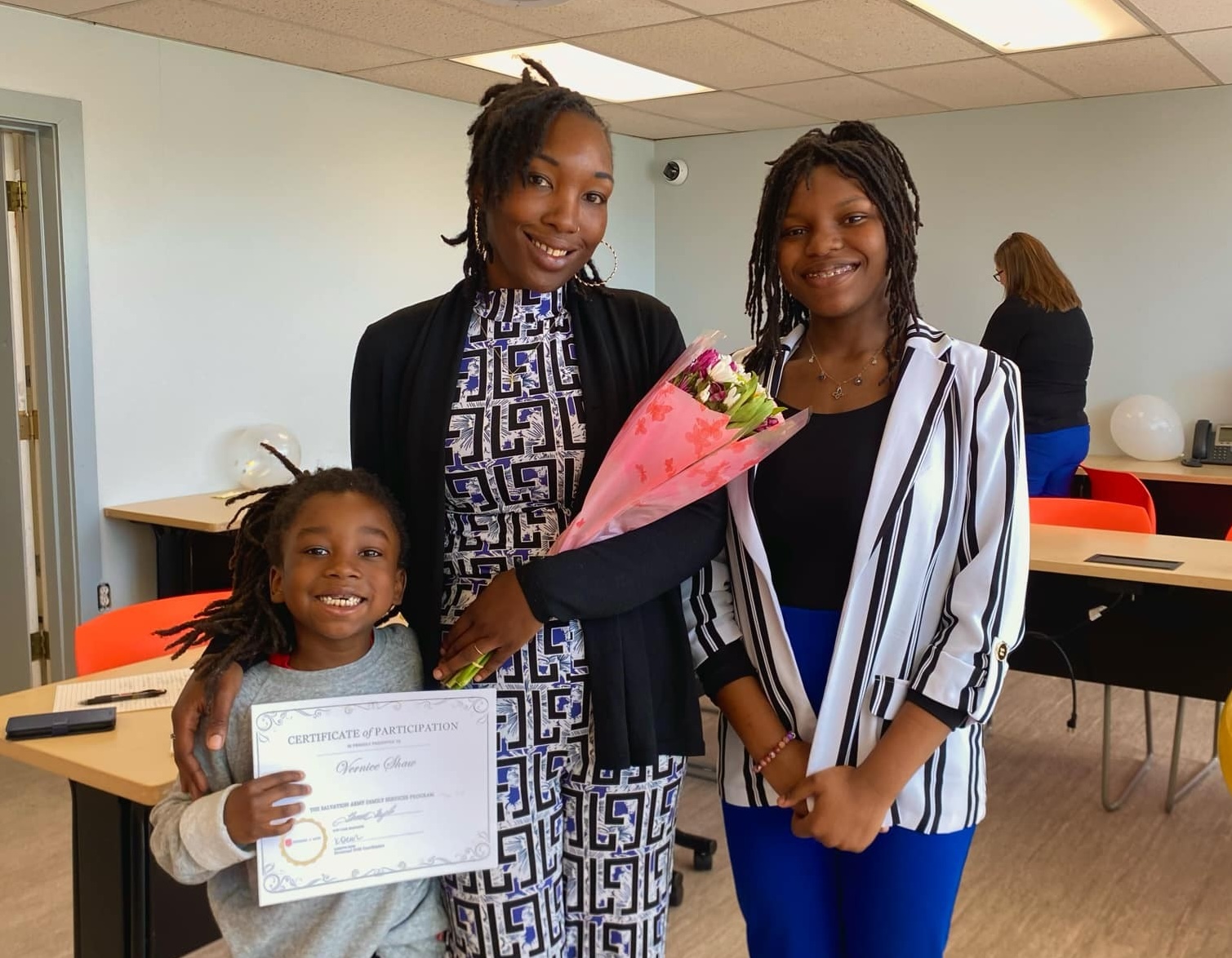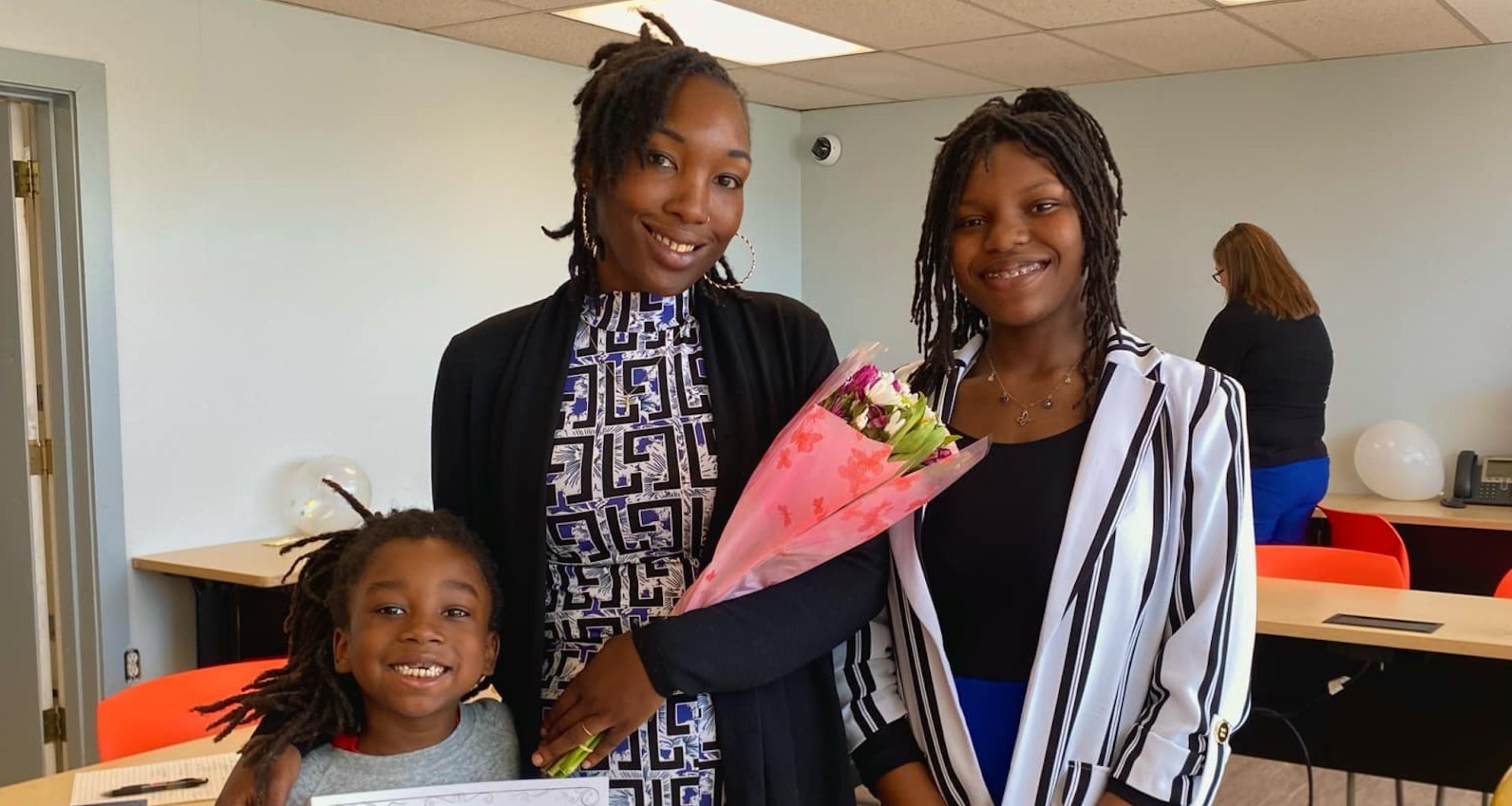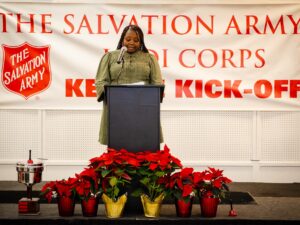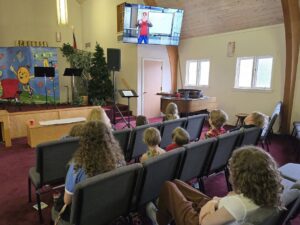After losing her home following illness, Vernice Shaw found support through The Salvation Army and now helps other families rebuild their lives.
When Vernice Shaw, a single mother of five, lost her home while battling sickle cell anemia, she said it felt like she became invisible to the world around her.
“People treat you differently when you’re homeless,” she said. “It’s rare for someone to even ask your name.”
Determined to keep her children and elderly mother safely sheltered during the frigid winter months in Tacoma, Washington, Shaw used her remaining funds to pay for hotel rooms while waiting for a Section 8 voucher.
When that money ran low, she reached out to local resources for help.
“I was determined to find a place where we could stay together while I figured out our next steps,” she said. “Giving up or being discouraged was never an option.”
In January 2024 she secured a spot at Jarvie Memorial Family Lodge, an emergency shelter in Tacoma operated by The Salvation Army that keeps families together for up to 90 days.
Having a safe place to stay gave Shaw the space to focus on rebuilding her life. With basic needs met, she could turn her attention to long-term goals, such as securing housing and childcare.
While there, she enrolled in Pathway of Hope—a Salvation Army program that provides case management, job assistance and housing support to help families achieve long-term stability.
“Pathway of Hope helped me discover more of my own strength,” she said. “It showed me just how much I’m capable of accomplishing.”
“It gives hope to a family knowing that they are supported in their journey to permanent housing and self-sufficiency; it makes all the difference in the outcome.”
Theron Taylor, Pathway of Hope Case Manager
Then Tacoma Corps Officer Major Cheryl Kinnamon met with Shaw during her time with Pathway of Hope and said Shaw rarely stayed in her room; she spent most days searching for jobs and housing while ensuring her children had time to play outside and have fun.
“Her determination and motivation were inspiring to so many,” Kinnamon said. “She really achieved a lot on her own.”
After less than a year in Pathway of Hope, Shaw secured housing, graduated from the program and found full-time work as a case manager at her local church, where she now supports families facing challenges she understands firsthand.
“My time with the program showed me that people trust me,” Shaw said. “Other guests often came to me for advice or looking for resources, and that’s when I realized my new calling.”
She said her Pathway of Hope Case Manager Theron Taylor supported her with kindness and patience, setting an example for how she plans to work with clients in her new role.
“He came alongside me and celebrated the wins, big or small,” Shaw said. “I saw just how valuable that emotional support can be. Sometimes all we need is a cheerleader.”
Taylor said that as a case manager, it’s important to serve as a navigator, guiding people to where they want to be.
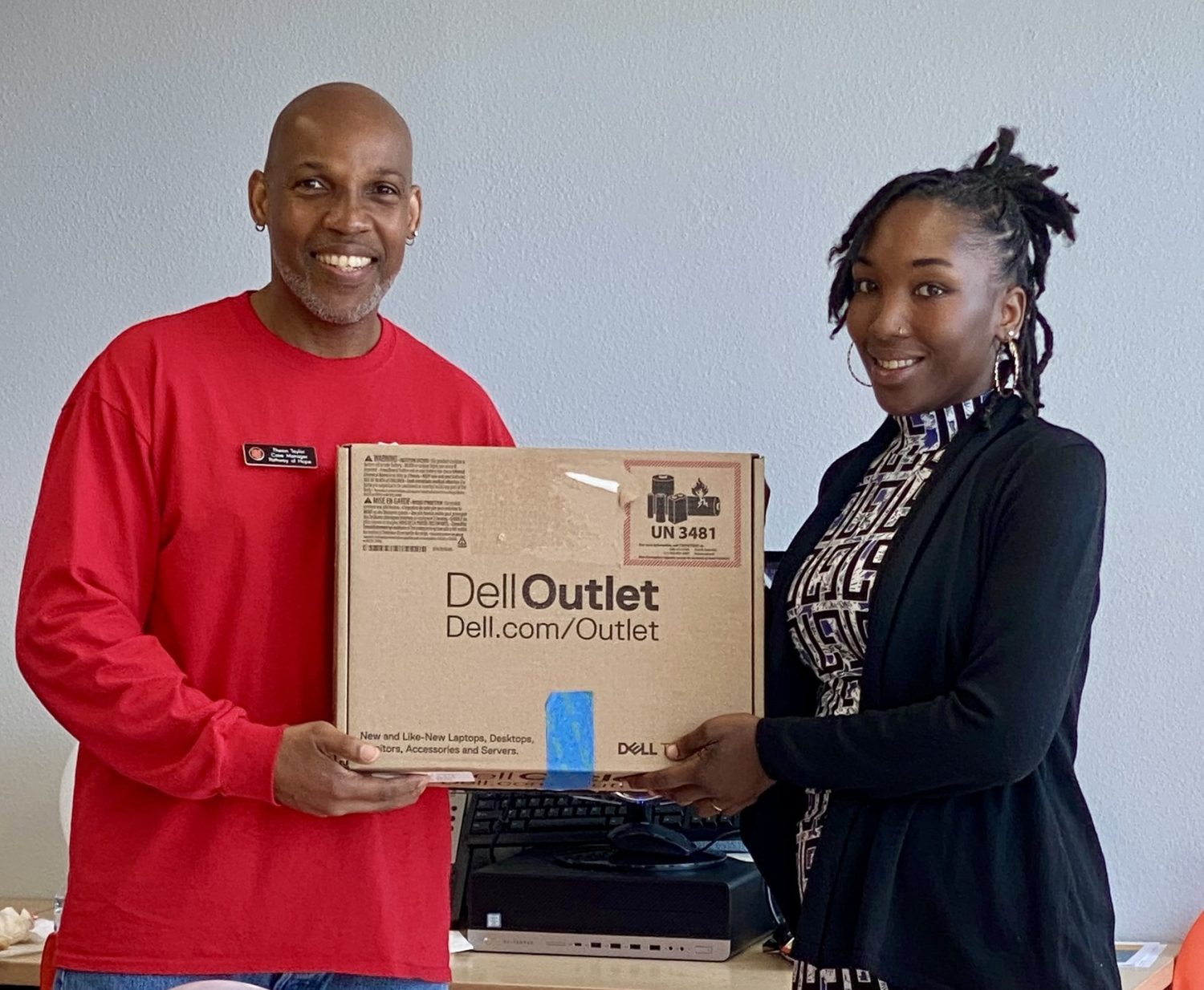
“It gives hope to a family knowing that they are supported in their journey to permanent housing and self-sufficiency; it makes all the difference in the outcome,” he said.
Today, Shaw is helping 17 families work toward stability, offering not just guidance but compassion stemming from lived experience.
“I learned that I’m a go-getter and a self-starter—and that I can connect with people without judgment,” Shaw said. “I’ve come to see that as a gift from God that I can use to help and encourage others.”
As a case manager, Shaw focuses on helping families build resilience by teaching skills like scheduling appointments, managing monthly budgets and finding jobs that match their qualifications.
She said helping people communicate better with their kids—encouraging active listening or setting aside time for one-on-one conversations during stressful times—can go a long way.
“It strengthens relationships, builds trust, and can help break any cycles,” she said.
Now, each day in her role, Shaw reminds people that they don’t have to go through tough times alone.
“I tell people, don’t be afraid to ask for help,” she said. “Don’t see it as shame or weakness—it’s the first step toward change. There are people who care and want to see you succeed.”
Do Good:
- It’s because of people like you that The Salvation Army can serve more than 27 million Americans in need each year. Your gift helps fight for good all year in your community. It’s an effort to build well-being for all of us, so together we rise—and that good starts with you. Give to spread hope with a donation of funds, goods or time today.
Keep the doors open for families in crisis.
Your gift today provides more than shelter. It restores dignity, brings peace of mind, and gives neighbors a chance to begin again.
